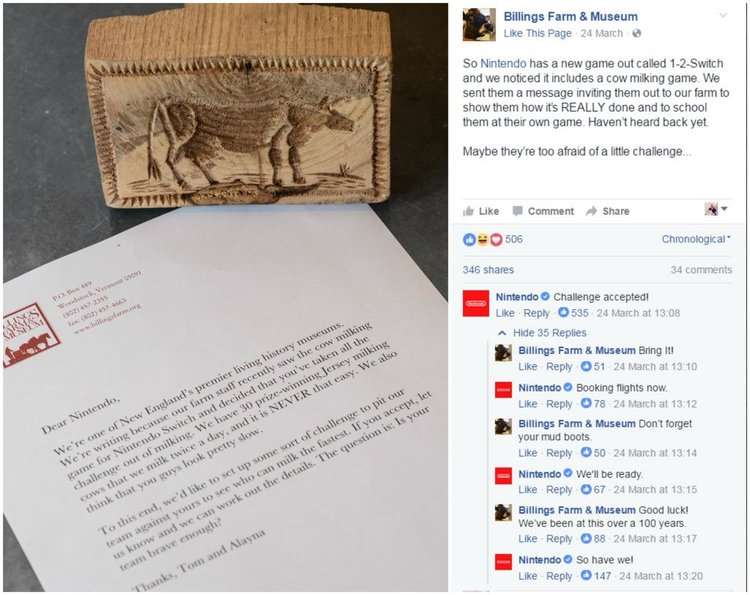Billings Farm and Museum issues milking challenge video game manufacturer
By Diego Flammini
Assistant Editor, North American Content
Farms.com
A dairy farm in Woodstock, Vermont issued a challenge in response to a game on Nintendo’s new console, the Switch.
1-2 Switch, a game for the Nintendo console, allows players to mimic the movements of hand-milking a cow. Players compete against one another to produce the most milk.
But after seeing the game, Billings Farm & Museum issued a challenge to Nintendo to send representatives to the farm to take part in a milking challenge.
“We have 30 prize-winning Jersey milking cows that we milk twice a day, and it is NEVER that easy,” states a letter written by Tom Remp, Billings Farm’s marketing director and Alayna Perkins, its farm manager. “We also think that you guys look pretty slow.
“To this end, we’d like to se up some sort of challenge to pit our team against yours to see who can milk the fastest.”
A challenge Nintendo accepted.
An exchange between the farm and video game manufacturer on Facebook included the farm wishing Nintendo luck.

Photo: Facebook
“We’ve been at this for over (100) years,” the farm said.
“So have we!” Nintendo replied.
According to video game website Polygon, a Nintendo representative confirmed the milking melee will occur.
Billings Farm & Museum confirmed the showdown will take place Wednesday, March 29.
The event is closed to the public but a video will be created to document the challenge.
Nintendo is no stranger to agriculture as its game library includes Harvest Moon, Professional Farmer and Story of Seasons.
Farms.com has reached out to Nintendo and Billings Farm for more information on the challenge.